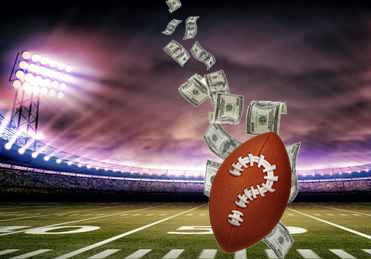Gambling: Fun & Games or Dangerous Addiction?
Expanded from original article published Jan. 30, 2015
Problem Gambling

Let’s be honest – the thrill of gambling (and winning) gets us pumped. For most people, gambling on the Super Bowl or participating in the office sports pool is just a source of entertainment and fun. But for some, gambling can become problematic and can even turn into a full-blown addiction. In fact, some estimates suggest that about 2 million Americans meet the criteria for gambling addiction. Worried you or a loved one might have a problem? Here are 7 warning signs to look for:
1. Feeling unable to stop
This is a hallmark symptom of any addiction, including gambling. The feeling of being out of control could suggest that the behavior has become more problematic than moderate.
2. Hiding gambling from friends/loved ones
Also known as “concealing,” reasons for hiding can be numerous, including not wanting to be judged and/or suspecting one would be asked to stop if others knew how much the individual was gambling.
3. Gambling with money that one cannot afford to lose
When helping individuals determine whether their drinking, using, gambling etc., is a problem, we encourage them to do a “cost/benefit analysis.” That is – to determine whether the benefits of the activity outweigh the costs. When the scales tip and the costs begin or continue to outweigh the benefits, such as when one gambles with money they don’t have, we consider this a sign of problematic behavior which warrants attention.
4. Attempting to recover losses by gambling more
This is part of the addictive cycle. What may start out as fun becomes problematic as somebody keeps engaging in the gambling behavior in an attempt to recover his/her losses. It may feel difficult to stop this cycle once it starts, as the person believes that his/her luck is due to change at any moment.
5. Gambling becomes a priority
People with a gambling addiction may find themselves skipping work or important family events in order to go to the casino. The desire to gamble becomes so strong that everything else seems significantly less important.
6. Spending an increasing amount of money
Just as people who are addicted to substances find themselves using more and more to get the same high, those who engage in problem gambling may find themselves betting increasing amounts of money to get the same rush.
7. Finding that gambling negatively impacts emotions
Feeling ashamed or embarrassed about the behavior, or increasingly anxious about the perceived loss of control, could suggest that gambling has become problematic.
As we learn more about problem gambling, the implications for diagnosis are changing. In the Diagnostic and Statistical Manual, 5th Edition (DSM V), published in May of 2013, gambling was moved from “Impulse-Control Disorders Not Elsewhere Classified” to “Addiction and Related Disorders,” which shows we are starting to recognize this disorder to be more like substance use and behavioral addiction disorders.
There is help for gambling addiction. While the gambler may feel out of control, the reality is that there are techniques available that can help one manage the behavior. Practical Recovery offers a self-empowering approach to the treatment of many addictions, including gambling. Additionally, many states offer resources for people who believe that they have a problem. Check out the website for the National Council on Problem Gambling at ncpgambling.org.
